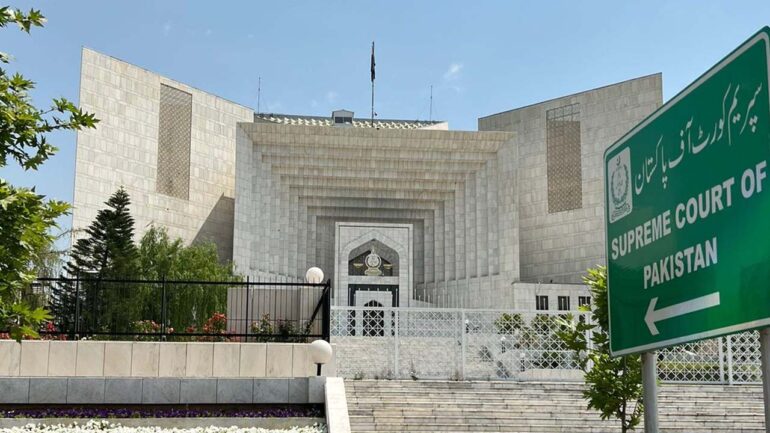The Supreme Court of Pakistan will hear the first-ever intra-court appeals (ICAs) on Tuesday against its own majority judgment on September 15.
The judgment had declared amendments to the National Accountability Ordinance (NAO) illegal, sparking a legal and political firestorm.
A five-judge bench, headed by Chief Justice of Pakistan Qazi Faez Isa and comprising Justices Amin-ud-Din Khan, Jamal Khan Mandokhail, Athar Minallah, and Syed Hasan Azhar Rizvi, will consider the ICAs in line with their earlier decision to uphold the Supreme Court (Practice and Procedure) Act 2023, a law enacted by the PDM government to regulate the affairs of the top court.
The controversy began with the September 15 judgment, which ruled that public representatives benefiting from the PDM government’s amendments to the NAO must face corruption references once more. The ICAs, filed by the federal government and former SSGCL managing director Zuhair Ahmed Siddiqui, challenge this ruling.
The federal government, represented by senior counsel Makhdoom Ali Khan, argues that the majority judgment is based on flawed facts and contrary to the law. The government contends that PTI Chairman Imran Khan, who challenged the amendments, was given ample opportunities to present his case during the hearings.
In contrast, they claim the government was unfairly restricted, leading to hurriedly prepared submissions.
The ICA also highlights alleged violations of natural justice and due process, citing the Supreme Court’s previous dictum in the 1990 Amanullah Khan case. It points out that several references were returned or transferred to other forums under the amendment act, leading to no acquittals.
Meanwhile, under PTI government amendments, numerous acquittals occurred, some of which are still under appeal.
Furthermore, the ICA emphasizes that none of the accused affected by the returned or transferred references were parties before the Supreme Court.



